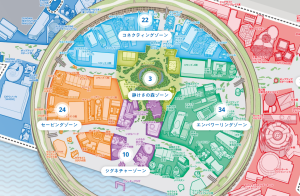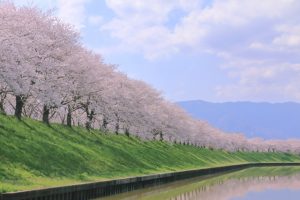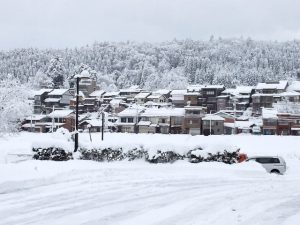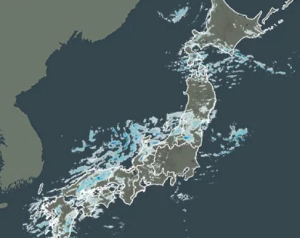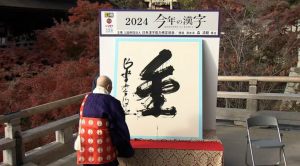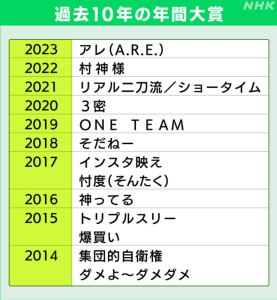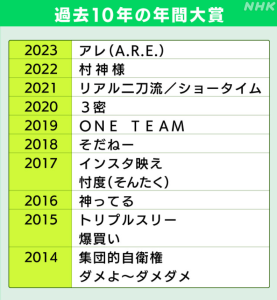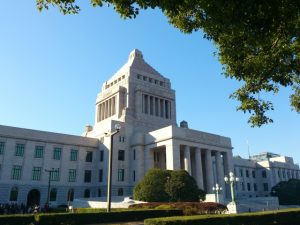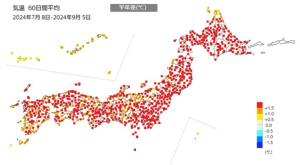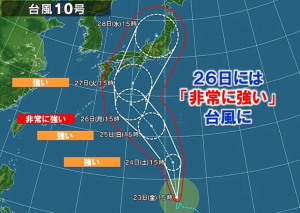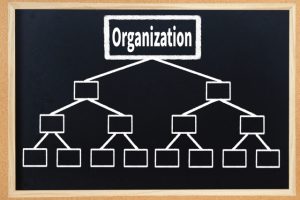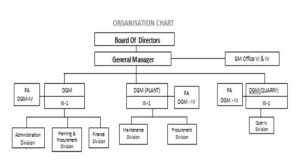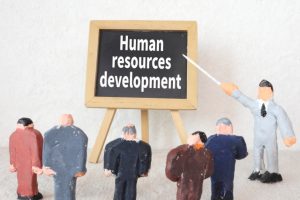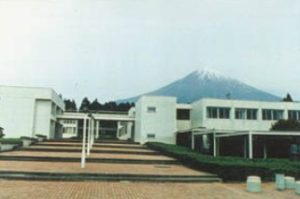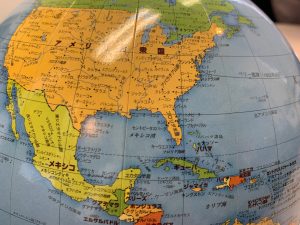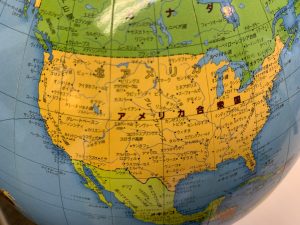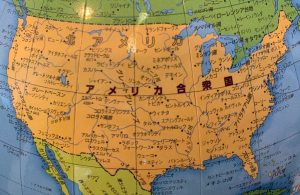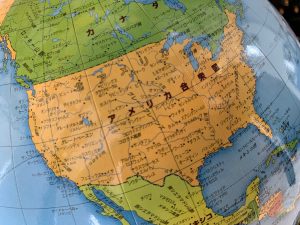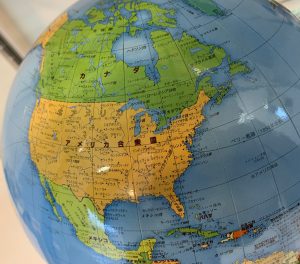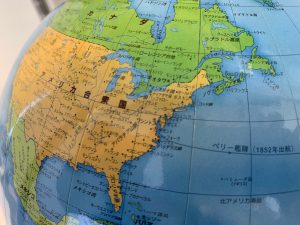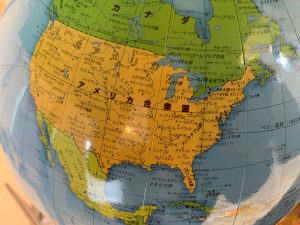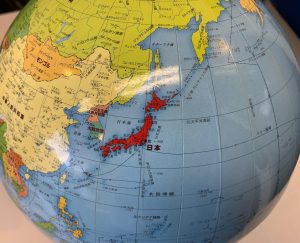Re: A news item and subject which I just want to check out (131) April 5, 2024
It is April already. On Monday, April 1, I think that entrance ceremonies were held in the enterprises, government offices and organizations all at once. I also remember like yesterday that I took flight into the world as a working adult 58 years ago from now. My first step started from Ube City, Yamaguchi Prefecture, where I had had no tie or connection until then. People who joined the company at the same time were about 110, and most of them were from the Kanto and Kansai region. After I took an introduction course for new employees for one month, I was assigned to chemical manufacturing plant. And when I went to work for the first time, I greeted everyone at site with “Good morning!” and they replied “mashita”. I don’t know if this style of greeting is currently being conducted, but it seemed to be a local custom at that time. Besides that, there were many dialects like “goppo wayajya” very messed up in English “yaburetoru” broken in English “ha kaeruka” already going home in English and “soujyake”, and I was confused by them. They stared at me with curiosity at first, because I was the first graduate to be assigned to the field and a youngster coming from Tokyo. But I was treated with great care to prevent injuries or accidents. And as I became more familiar with the field, after I finished work at 4:00 PM, I used to drink with field workers with “tonchan nabe” similar to “horumon yaki “in Osaka and fresh seafood such as globefish, mantis shrimp or ocellated octopus. And I also often went fishing. On the site tour, I went to the cutting edge of coal mining, about 200 meters underground, jutting out into the Seto Inland Sea, and I witnessed the sight of people holding their bodies in half and digging coal. And I also experienced radical trade union movement and strike. By the way, Ube was a company town, and then even if I was a new employee, if I had my name card, I could pay on credit not only at a bar I visited for the first time but also going by taxi. Therefore, on payday, it was like they took it all back immediately. And my new employee’s time was something like I did not know the reason why I was working. Now, everything is just a nostalgic memory. Staying in Ube was only about three years, but experience at the site and interacting with the locals had a huge impact on my life as tangible and intangible teachings.
Therefore, what I would like to say to young people is that once you join a company, you should “tackle recklessly or challenge without any reason what seems” boring at first glance”.
This fosters “animal spirits” which Japanese people are lacking now, and enhances “human power” by which you survive “the 100-year life era” from now on. I also had clashed with my boss over the way I worked several times. Looking back now, there was a case that I was “ashamed of myself”. If the result of your sincere efforts with all your heart and soul, “rushing recklessly” or “out of youthful passion”, ends in failure, the experience in your youth will not go to waste. And “you can make your living anywhere in this world” or “one’s man’s trash is another man’s treasure”. You don’t need to give up. And to achieve “self-realization”, you should broaden your horizons to the world regardless of narrow Japan. That is the privilege of youth.
■■What I have recently thought and focused on:
■A survey of dissatisfaction with society conducted by the Cabinet Office (carried out in November and December last year, targeted at 3,000 persons aged 18 and older, 57.1 % rate of collection)
According to “public opinion poll regarding social awareness” recently published by the Cabinet Office, it asked a question, multiple answers allowed, of points people are not satisfied with in the society now, and “financially insecure and uncertain” was the most, 63.2 % increased by 0.7 points compared to the previous poll published in March last year. The second or less were “tough to raise children” (28.6 %), “young people find it challenging to achieve independence in society” (28.2 %), “women find it challenging to achieve independence in society” (26.2 %) and “no comfortable working environment” (25.8 %). And regarding the fields Japan is heading for wrong direction (multiple answers allowed), “the cost of living” was the top, 69.4 %. And “government finances” (58.4 %), “economy” (58.1 %), and “economic power” (46.7 %). On the other hand, regarding the fields Japan is heading for right direction, “nothing particular” and “medical welfare” (25.5 %) and “security” (18.6 %).
Questions are not directed towards politics, but I think this survey result represents precisely public awareness for the current state of Japan leading to anxiety about the future.
Incidentally, in Japan, the number of applications for public assistance was 255,000 increased by 7.6 % compared to the previous year and it has increased for the fourth consecutive year. The number of households receiving benefits was 1,654,000 as of the end of December last year and it has become the highest record. Among households receiving benefits, elderly households account for 55 % as of the end of December last year increased by 10 points compared to 20 years ago, and I believe that this trend is expected to further intensify in the future.
And according to the Ministry of Health, Labor and Welfare, relative poverty rate (*) in Japan in 2021 was 15.4 %, 1.9 points higher than 30 years ago. According to OECD, this rate in the United States was 15.1 % in 2021 and in the United Kingdom 11.2 % in 2020. It can be said that economic disparity in Japan is slightly larger than in the United States and the United Kingdom. Incidentally, poverty rate under the age of 18 in 2021 was 11.5 % improved by 2.5 points from 14.0 % in the previous survey in 2018.
In addition to this, there are serious social issues in Japan. According to the survey conducted by the Cabinet Office in 2022, the number of stay-at-home was 1.46 million increased by 0.3 million compared to 2019. And abuse and bullying of children and elderly people and various harassments are also increasing. And there is an issue so called young carer where one in fifteen sixth grade “has a family to look after”. And about 100,000 people left their jobs to care for a parent last year.
(*) relative poverty rate: it represents the proportion of people living less than half the median equivalent disposable income, which is obtained by adjusting the quotient of household disposable income and the square root of the number of the household members, in their country.
It is pointed out that the underlying issue behind such problems is declining birthrate and aging population and low economic growth. In Japan, a debt or issuing government bonds over 1,000 trillion yen, more than twice the GDP, has been accumulated in the last 60 years, but decline of national power, consequently decline in international standing has continued.
In my humble opinion, one of these factors is that both our country and companies regarded investment in tangible assets or public buildings as important, and investment in intangible assets or software making good use of these, in other words, investment in human resource development, research and development and so on were insufficient. As a result, I think that Japan was not able to fully utilize investments in hardware, and its productivity became the lowest in advanced countries. And the other thing is that the past industrial policy regarded “convoy system” as important. Especially, policies on small and medium-sized enterprises. This is so called scheme of relying on each other among politicians, business leaders and bureaucrats. Reorganization and selection are not progressing, and there are many Zombie companies. Over 60 % of all companies, about 2.85 million in 2021, are loss-making companies and they don’t or can’t pay corporate tax. The Koizumi administration used to take drastic measures against disposal of nonperforming loans considered to be the legacy of the Bubble economy. As a result, financial system in Japan was strengthened, and Japan got through “Lehman shock”, the global financial crisis occurred in 2008, without much trouble. This is a good example.




